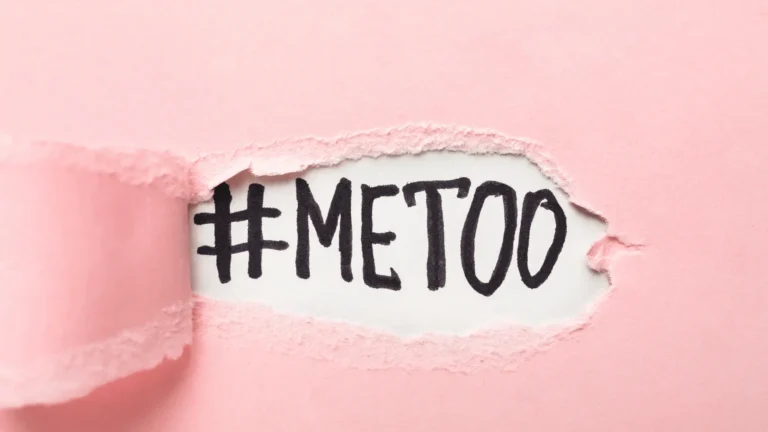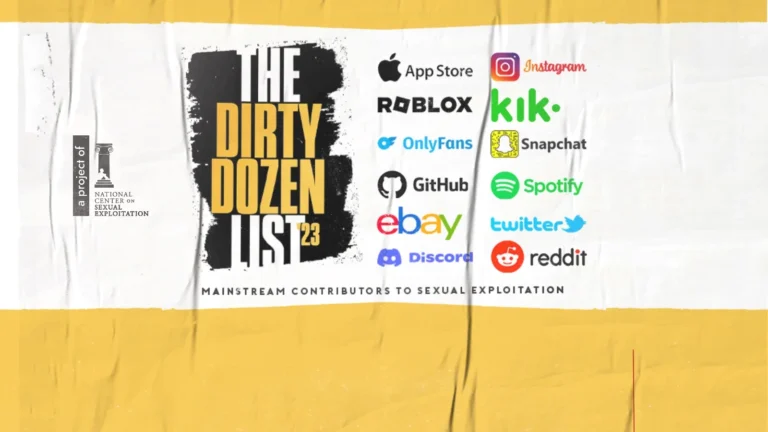The National Center on Sexual Exploitation is pleased to give the Dignity Defense Award to Uber and Lyft, two ride-sharing companies who have stepped up as industry leaders in the fight against sexual violence.
Sexual assault and harassment on transportation services is a far too common occurrence, so much so that Congress considers new legislation to help combat the issue.
Popular rideshare companies, Uber and Lyft, have not been immune to this tragic trend. However, unlike other institutions that try to bury sexual assault cases, Uber and Lyft have taken the opposite approach: bringing the problem to light in order to root it out ad protect their clients and employees.
How Uber and Lyft are Combating Sexual Violence through Transparency
In 2018, Uber and Lyft both committed to releasing transparency reports that would publicly disclose statistics on sexual assaults occurring in their cars. Uber followed through with its first transparency report in 2019, and Lyft did so in 2021. Disclosing data on sexual assaults was a bold and admirable move that set a new standard for transparency in the industry.
Uber’s CEO, Dara Khosrowshahi, stated: “Most companies wouldn’t proactively disclose the bad things reported to happen on their platform, especially when it comes to sexual assault… [B]ut ultimately we came to the shared belief that being a true leader requires that we do the right thing, which means acting with transparency, embracing accountability, and making decisions without fear of bad headlines.”
Transparency reports are crucial for holding companies accountable to improving safety on their platforms and allowing the public to inform themselves about the safety of the services they use. As Uber states, “People have the right to know about the safety records of the companies they rely on every day.” Uber and Lyft’s transparency reports contain data about the extent and nature of sexual assault occurrences the companies experience, as well as what safeguards they have put in place to combat the issue. Therefore, transparency reports also ensure that the data necessary for improving safety is collected and shared in a way that allows for the development of industry-wide best practices. Uber explains, “In order to improve something, you have to measure it. Yet data on serious safety issues, especially sexual violence, is sparse and inconsistent. By sharing hard data, we can hold ourselves accountable and share best practices with other companies for the benefit of everyone.”
A further way that Uber and Lyft embraced public accountability was through ending the widespread practice of mandatory arbitration for individual claims of sexual assault or harassment. The companies’ previous mandatory arbitration policies prevented survivors from pursuing justice in court, instead requiring that the case be settled privately by a third party called an arbitrator, and that survivors enter into confidentiality agreements. Forced arbitration policies have been criticized for how they silence survivors and allow a company to hide their failings. Fortunately, Congress passed a new law in March 2022 ending forced arbitration for sexual harassment and assault claims. While Uber and Lyft still had retained mandatory arbitration policies that prevent class action lawsuits for sexual assault and harassment (now invalid thanks to the new federal law), the voluntary repealing of mandatory arbitration for individual claims was a step in the right direction which we commend.
Of course, it is not enough for a company to simply be transparent about cases of sexual violence if they do nothing to solve these problems and prevent further cases. Therefore, we also applaud Uber and Lyft for the improvements they made towards safety and prevention.
How Uber and Lyft are Working to Make Users Safer by Preventing Sexual Violence
In 2018, Uber strengthened driver screenings by proactively committing to re-run criminal background and motor vehicle checks each year. In 2018 and 2019 respectively, Uber and Lyft both added a button in their app that directly connects riders or drivers to 911. Uber added an app feature that allows riders to share live trip information with up to five trusted contacts, while Lyft added a “check-in” feature, which would ask unexpectedly delayed drivers or riders if they are safe and prompt them to get emergency assistance if not.
In 2020, Uber and Lyft collaborated to launch an “industry sharing safety program”, through which the two companies and other transportation services share among each other the names of drivers who have been banned over sexual assaults or other serious safety violations. Uber’s Chief Legal officer, Tony West, stated: “I’ve often said that safety should not be proprietary… While Uber and Lyft are fierce competitors on many fronts, I think on this safety issue we agree that folks should be safe no matter what ridesharing platform they choose.”
Uber and Lyft have also both partnered with the Rape, Abuse, Incest National Network (RAINN) to develop and implement sexual assault education for their drivers.
As sexual violence continues to plague the transportation industry and as Congress deliberates the Stop Sexual Assault and Harassment in Transportation Act, it is especially important to elevate industry leaders like Uber and Lyft. They provide an example of the types of actions companies can take and they set minimum standards to which Congress and customers should hold the transportation industry as a whole. The National Center on Sexual Exploitation commends Uber and Lyft for taking sexual violence seriously, accepting responsibility for the role their services play in facilitating harm, and making substantive changes to become part of the solution.
More can be done to combat sexual violence across the entire transportation industry! If you are a U.S. Citizen, please take a moment to complete the action below, which asks Congress to pass the Stop Sexual Assault and Harassment in Transportation Act.



